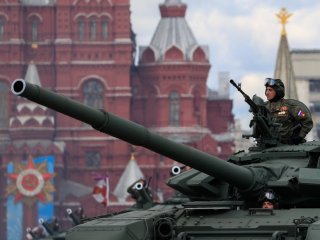Opportunity for Diplomacy: No Russian Attack Before February 20
Most of the American foreign policy community has still not come to grips with the relationship that has developed between Russia and China in the decade since Xi Jinping became president.
After Russia seized Crimea from Ukraine in 2014, when the United States imposed sanctions aimed at limiting Russia’s access to global financial markets and restricted its trade regime, China had its back. It signed a three-year currency swap deal worth $25 billion that gave Russia access to currency it could use for trade without violating U.S. restrictions. That same year, it also signed a $400 billion gas deal. In defiance of America’s global embargo on Iranian oil, Russia imported Iranian oil to sell onto international markets, including China.
Meanwhile, Russian elites continue to look West. They are predominantly European in their culture, history, religion, and dreams. Wealthy Russians buy second (and third) luxury homes in London, New York, and on the French Riviera. They speak English and travel to Paris, New York, or London to shop. Many have children who live in the West. Cultural change is hard, and slow. But oligarchs who now find themselves the targets of sanctions that prevent them from doing business in the United States are exploring alternatives. And some of Russia’s leading thinkers are changing their tune. The Honorary Chairman of Russia’s Council on Foreign and Defense Policy Sergey Karaganov maintains that “the ‘westernizer’ today is a thing of the past. Those looking forward to the future most show interest in the East.” In 2021, surveys showed that 39 percent of Russians held a positive view of the United States, while 74 percent of Russians held a positive view of China. When asked who their “greatest enemies” are, 60 percent of Russians pointed to the United States, ranking it as Russia’s greatest foe. 40 percent of Russians viewed China as their “greatest friend,” second only to Belarus.
The year before he died in 2017, one of America’s leading twentieth-century strategic thinkers, Zbigniew Brzezinski, tried to sound an alarm. In analyzing threats to American security, “the most dangerous scenario,” he warned, would be “a grand coalition of China and Russia… united not by ideology but by complementary grievances.” This coalition “would be reminiscent in scale and scope of the challenge once posed by the Sino-Soviet bloc, though this time China would likely be the leader and Russia the follower.” Brzezinski’s specter of an “alliance of the aggrieved” is now materializing on the geopolitical map. We should remember how the last contest in trilateral diplomacy ended.
Graham T. Allison is the Douglas Dillon Professor of Government at the Harvard Kennedy School. He is the former director of Harvard’s Belfer Center and the author of Destined for War: Can America and China Escape Thucydides’s Trap?
Image: Reuters.

